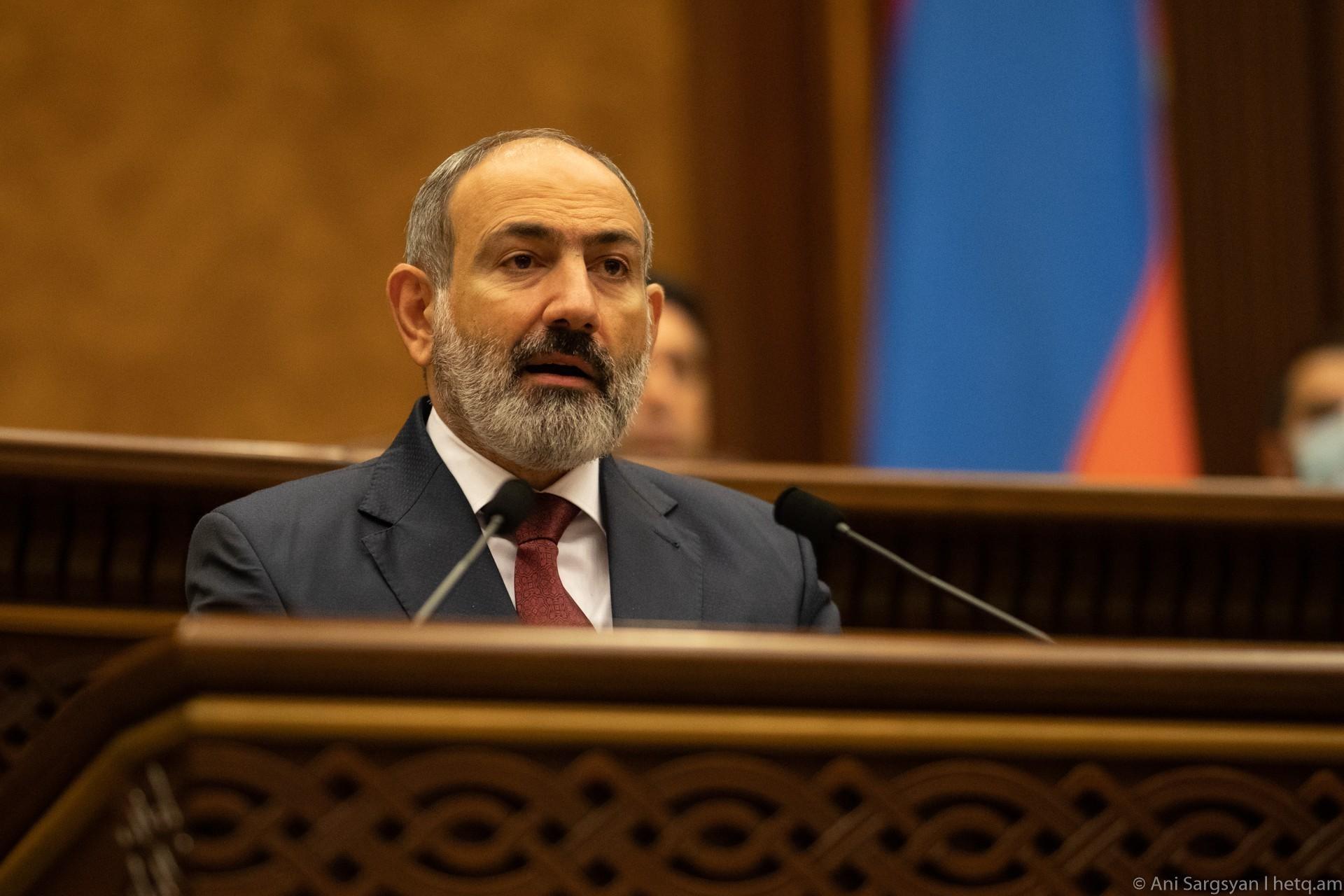
Pashinyan Fails to Answer Hetq's Inquiries on Point 7 of November 9, 2020 Statement Dealing with Return of IDPs/Refugeess
Armenian PM Nikol Pashinyan does not know or does not want to answer the question of what the 7th point of the trilateral statement signed by the leaders of Armenia, Azerbaijan and Russia on November 9, 2012 actually means in practice.
Point 7 states: Internally displaced persons and refugees shall return to Nagorno-Karabakh and adjacent areas under the control of the Office of the UN High Commissioner for Refugees.
On July 19, 2021, Hetq sent a written inquiry to Pashinyan asking him to provide information on Article 7 of the tripartite statement that residents of the regions may return to their homes, such as Getashen or Gulistan, in the Shahumyan region of the NKR, from which Armenians were displaced in the 1990s․ Can residents of now Azerbaijani occupied Hadrut region return? And, in general, what do those who signed the November 9 statement mean by the phrase "return of refugees"?
According to the Freedom of Information Law, the Prime Minister's Office is obliged to respond to our request sent on July 19 within five working days, or if additional work is required, to provide the information mentioned in the written request within 30 days, provided that within five days after receiving the request, the applicant is notified in writing, stating the reasons for the delay.
In this case, the Prime Minister's Office did not respond to our inquiry within five days, nor did it inform us within 5 days that additional work was needed.
Eight days after sending our inquiry, Hetq called Armen Khachatryan, the head of the Information and Public Relations Department of the Prime Minister's Office. He said an answer would be provided in two days. Nothing was sent. A few days later we called Armen Khachatryan again and received the same answer. We received the same answer three times, the last one on August 30. Khachatryan said a response had been drafted and that they were only waiting for a confirmation. We were told to wait another two days. 33 working days have passed since our first written inquiry, but we have not received any response.
During the 1990s Artsakh war, Azerbaijani armed forces carried out ethnic cleansing in several Armenian-populated villages of Artsakh. Civilians were forcibly displaced from dozens of villages, brutally killed and taken prisoner. The fate of many of them is still unknown.
Thousands of Armenians were deported from their homes in the wake of the 2020 war. The regions of Hadrut and Shahumyan of the Artsakh Republic were completely emptied of Armenians. The Kashatagh District was almost completely emptied of Armenians, as well as settlements in Martakert, the Askeran-Martuni regions, the town of Shush and the Karin Tak village of Shushi District.
After the war ended, PM Nikol Pashinyan addressed the issue of the return of refugees in a November 25, 2020 interview with the Russian TASS agency. In response to a reporter’s question whether he expected the return of refugees to the villages now controlled by Azerbaijan, Pashinyan gave the following answer.
"Yes, it refers to the regions of Nagorno Karabakh. Our joint statement envisages the return of those people to their homes. It is for this point that it is necessary to create clear mechanisms, clear security guarantees, and it is necessary to ensure and organize the whole process. That process must become a priority for the negotiation process.”
Even these remarks by Pashinyan fail to answer our questions regarding Point 7 of the November 9 trilateral statement.
Point 7, and several other clauses of the November 9 statement, remain unrealized.
 Videos
Videos Photos
Photos
Write a comment